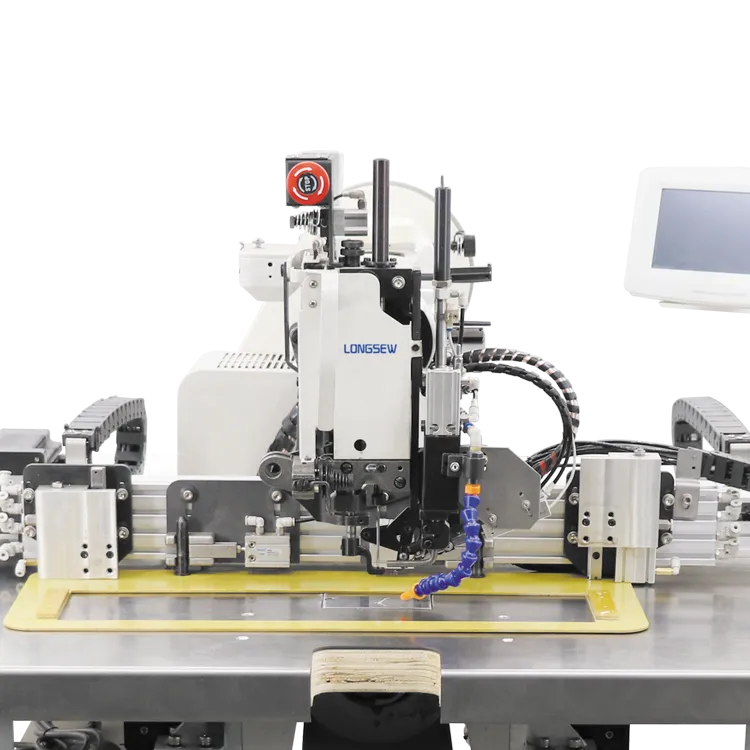sewing machine for heavy duty fabric
Choosing the Right Sewing Machine for Heavy Duty Fabric
When it comes to sewing heavy duty fabrics, having the right tool is essential to ensure that your projects turn out successfully and professionally. Heavy duty fabrics are commonly thicker and denser than regular fabrics, requiring stronger equipment to handle the unique challenges they present. Whether you are working on upholstery, leather goods, canvas, or multiple layers for outdoor gear, a heavy-duty sewing machine can make all the difference. This article will explore the features to look for and recommendations on choosing the best sewing machine for heavy duty fabric.
Key Features to Consider
1. Motor Power One of the most critical factors in a sewing machine designed for heavy duty work is the power of its motor. A machine with a high-powered motor can penetrate multiple layers of thick fabric without straining. Look for machines that explicitly mention their heavy-duty capabilities and have a motor rated for high performance.
2. Stitch Options While you may think that a basic straight stitch is all you need, a variety of stitch options can offer versatility in your projects. Some heavy duty machines come with additional stitches like zigzag, decorative stitches, and even quilting options. These provide flexibility, enabling you to add creative touches to your work.
3. Needle Compatibility Heavy duty fabrics often require thicker needles to puncture the material without breaking or bending. Ensure the sewing machine comes with a suitable needle system and check if it is compatible with heavy-duty needles. Typically, a system that allows for a range of needle sizes (such as 16 or 18) is ideal for handling different types of materials.
4. Feeding Mechanism The feeding mechanism is crucial when working with heavy fabrics, as they can often drag or bunch. Look for machines that have a strong feed dog mechanism and various feed options like walking foot or dual feed capabilities. These features help to prevent shifting and ensure that all layers are sewn evenly.
5. Durability A sewing machine made for heavy duty use should be constructed from robust materials. Look for a model with a metal frame rather than a plastic body, which can warp under pressure. A durable machine can withstand the rigors of extensive sewing projects and offer longevity.
6. Work Area Larger projects often demand a spacious work area. Many heavy-duty sewing machines come with an extended work surface or an optional extension table, providing more room to maneuver heavy fabrics. This feature facilitates smooth sewing without fabric bunching at the edges.
sewing machine for heavy duty fabric

7. Adjustable Speed Control When sewing thick materials, the control of speed is fundamental. A machine with adjustable speed settings allows you to tackle various thicknesses and types of fabric at your own pace, providing better accuracy.
Recommendations
If you are on the lookout for heavy-duty sewing machines, several models consistently top the charts
1. Singer 4423 Heavy Duty Sewing Machine Renowned for its powerful motor and versatility, the Singer 4423 is excellent for sewing through thick fabrics. It is equipped with 23 stitch options, a strong metal frame, and a considerable work area that can handle large projects with ease.
2. Brother ST371HD This is a budget-friendly option that doesn’t skimp on features. The Brother ST371HD comes with a variety of stitches, a powerful motor, and heavy-duty needle capabilities, making it suitable for a range of projects from heavy fabrics to lighter materials.
3. Janome HD3000 Known for its reliability, the Janome HD3000 is a favorite among professionals and hobbyists alike. It includes many built-in stitches, features a robust metal body, and accommodates multiple layers of heavy fabric with ease.
4. Juki TL-2010Q For the serious sewist, the Juki TL-2010Q offers an industrial-strength solution. With an incredible speed of 1500 stitches per minute, this machine is perfect for quilting as well as heavy duty sewing.
Conclusion
Investing in a heavy-duty sewing machine can drastically improve your sewing experience, especially when working with challenging materials. Be sure to consider factors like motor power, stitch variety, durability, and ease of use, tailored to your specific needs. With the right machine, you’ll be able to tackle any heavy-duty project with confidence and creativity!
-
Industrial Cylinder Arm Sewing Machine: Revolutionizing Heavy-Duty SewingNewsJul.28,2025
-
Cylinder Arm Sewing Machine: Perfect for Special Sewing ApplicationsNewsJul.28,2025
-
Cylinder Bed Sewing Machine: Essential for Sewing Complex MaterialsNewsJul.28,2025
-
Heavy Duty Sewing Machine: The Essential Tool for Industrial ApplicationsNewsJul.28,2025
-
Computerized Pattern Sewing Machine: Revolutionizing Precision StitchingNewsJul.28,2025
-
Heavy Duty Industrial Sewing Machine: Power Meets PrecisionNewsJul.28,2025
-
Leather Sewing Machine: The Industrial Standard for Tough MaterialsNewsJul.18,2025





























